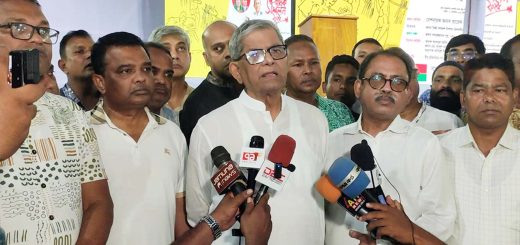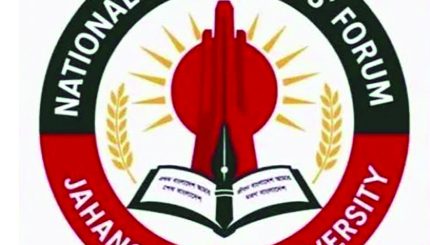Poet Kamini Roy

Kamini Roy (12 October 1864 – 27 September 1933) was a leading Bengali poet, social worker and feminist in British India . She was the first woman Honours Graduate in British India.
Born on 12 October 1864 in the village of Basanda, then in Bakergunj district of Bengal Presidency and now in Barisal District of Bangladesh, she joined Bethune School and passed the First Arts examination in 1883. A part of the earliest batch of girls to attend school, she was the first woman Honours Graduate in the country, having passed her Bachelor of Arts Degree with Sanskrit Honours from Bethune College of the University of Calcutta in 1886. Kadambini Ganguly was three years senior to her in the same institution. She continued her association with Bethune College as a teacher.
She hailed from an elite Bengali family. Her father, Chandi Charan Sen, a judge and a writer, was a leading member of the Brahmo Samaj. Nisith Chandra Sen, her brother, was a renowned Barrister in the Calcutta High Court, and later the Mayor of Calcutta. Another sister, Jamini was the house physician of the then Nepal Royal family. In 1894 she married Kedarnath Roy.
Bethune School and College will take just pride in Kamini Roy (1864-1933), the first woman lyrist who began composing from 1880 and published her Alo Chhaya in 1889 which created a stir in the literary world as much by its rare sensibilities as by the profundity of woman’s self-realisation. Kamini Roy worked with her pen for nearly fifty years and witnessed the emergence of a new generation of womanhood enriching the social, artistic and literary life of Bengal through their original creations.
Nag, Kalidas
Kamini Roy was a feminist in an age when even women’s education was a taboo. She picked up the cue for feminism from a fellow student of Bethune School, Abala Bose. In an address delivered at a girls’ school in Calcutta she declared that the aim of women’s education was to contribute to their all-round development and fulfilment of their potential.
In a Bengali essay titled ‘The Fruit of the Tree of Knowledge’ she wrote,
“The male desire to rule is the primary, if not the only, stumbling block to women’s enlightenment… They are extremely suspicious of women’s emancipation. Why? The same old fear -‘Lest they become like us’.”
In 1921, she was one of the leaders, along with Kumudini Mitra (Basu) and Mrinalini Sen of the Bangiya Nari Samaj to fight for woman’s suffrage. Limited suffrage was granted to women in 1925, and in 1926 Bengali women exercised their right for the first time.
She was in the Female Labour Investigation Commission (1922-23).
She went out of her way to encourage other writers and poets. In 1923, she visited Barisal and encouraged Sufia Kamal, then a young girl, to continue writing. She was President of the Bengali Literary Conference in 1930 and Vice-President of the Bangiya Sahitya Parishad in 1932-33.
She was influenced by the poet Rabindranath Tagore and Sanskrit literature. Calcutta University honoured her with the Jagattarini Gold Medal.
In her later life, she lived at Hazaribagh for some years. In that small town, she often had discussions on literary and other topics with such scholars as Mahesh Chandra Ghosh and Dhirendranath Choudhury.
She breathed her last on 27 September 1933.
Amongst her notable literary contributions were -Mahasweta, Pundorik, Pouraniki, Dwip O Dhup, Jibon Pathey, Nirmalya, Malya O Nirmalya, and Ashok Sangeet. She wrote Gunjan for children and a book of essays Balika Sikkhar Adarsha.
References : Sengupta, Subodh Chandra and Bose, Anjali (editors), 1976/1998, Sansad Bangali Charitabhidhan (Biographical dictionary) Vol I, (Bengali), p83, ISBN 81-85626-65-0
Nag, Kalidas, Introduction to the Bethune School and College Centenary Volume, 1949.
Ray, Bharati, Women in Calcutta: the Years of Change, in Calcutta The Living City Vol II, edited by Sukanta Chaudhuri, Oxford University Press, first published 1990, paperback edition 2005, page 36-37. ISBN 0-19-563697-X.
This has been included in an English book Talking of Power – Early Writings of Bengali Women from the Mid-Nineteenth Century to the Beginning of the Twentieth Century edited by Malini Bhattacharya and Abhijit Sen.
-Wikipedia, the free encyclopedia
Born on 12 October 1864 in the village of Basanda, then in Bakergunj district of Bengal Presidency and now in Barisal District of Bangladesh, she joined Bethune School and passed the First Arts examination in 1883. A part of the earliest batch of girls to attend school, she was the first woman Honours Graduate in the country, having passed her Bachelor of Arts Degree with Sanskrit Honours from Bethune College of the University of Calcutta in 1886. Kadambini Ganguly was three years senior to her in the same institution. She continued her association with Bethune College as a teacher.
She hailed from an elite Bengali family. Her father, Chandi Charan Sen, a judge and a writer, was a leading member of the Brahmo Samaj. Nisith Chandra Sen, her brother, was a renowned Barrister in the Calcutta High Court, and later the Mayor of Calcutta. Another sister, Jamini was the house physician of the then Nepal Royal family. In 1894 she married Kedarnath Roy.
Bethune School and College will take just pride in Kamini Roy (1864-1933), the first woman lyrist who began composing from 1880 and published her Alo Chhaya in 1889 which created a stir in the literary world as much by its rare sensibilities as by the profundity of woman’s self-realisation. Kamini Roy worked with her pen for nearly fifty years and witnessed the emergence of a new generation of womanhood enriching the social, artistic and literary life of Bengal through their original creations.
Nag, Kalidas
Kamini Roy was a feminist in an age when even women’s education was a taboo. She picked up the cue for feminism from a fellow student of Bethune School, Abala Bose. In an address delivered at a girls’ school in Calcutta she declared that the aim of women’s education was to contribute to their all-round development and fulfilment of their potential.
In a Bengali essay titled ‘The Fruit of the Tree of Knowledge’ she wrote,
“The male desire to rule is the primary, if not the only, stumbling block to women’s enlightenment… They are extremely suspicious of women’s emancipation. Why? The same old fear -‘Lest they become like us’.”
In 1921, she was one of the leaders, along with Kumudini Mitra (Basu) and Mrinalini Sen of the Bangiya Nari Samaj to fight for woman’s suffrage. Limited suffrage was granted to women in 1925, and in 1926 Bengali women exercised their right for the first time.
She was in the Female Labour Investigation Commission (1922-23).
She went out of her way to encourage other writers and poets. In 1923, she visited Barisal and encouraged Sufia Kamal, then a young girl, to continue writing. She was President of the Bengali Literary Conference in 1930 and Vice-President of the Bangiya Sahitya Parishad in 1932-33.
She was influenced by the poet Rabindranath Tagore and Sanskrit literature. Calcutta University honoured her with the Jagattarini Gold Medal.
In her later life, she lived at Hazaribagh for some years. In that small town, she often had discussions on literary and other topics with such scholars as Mahesh Chandra Ghosh and Dhirendranath Choudhury.
She breathed her last on 27 September 1933.
Amongst her notable literary contributions were -Mahasweta, Pundorik, Pouraniki, Dwip O Dhup, Jibon Pathey, Nirmalya, Malya O Nirmalya, and Ashok Sangeet. She wrote Gunjan for children and a book of essays Balika Sikkhar Adarsha.
References : Sengupta, Subodh Chandra and Bose, Anjali (editors), 1976/1998, Sansad Bangali Charitabhidhan (Biographical dictionary) Vol I, (Bengali), p83, ISBN 81-85626-65-0
Nag, Kalidas, Introduction to the Bethune School and College Centenary Volume, 1949.
Ray, Bharati, Women in Calcutta: the Years of Change, in Calcutta The Living City Vol II, edited by Sukanta Chaudhuri, Oxford University Press, first published 1990, paperback edition 2005, page 36-37. ISBN 0-19-563697-X.
This has been included in an English book Talking of Power – Early Writings of Bengali Women from the Mid-Nineteenth Century to the Beginning of the Twentieth Century edited by Malini Bhattacharya and Abhijit Sen.
-Wikipedia, the free encyclopedia








